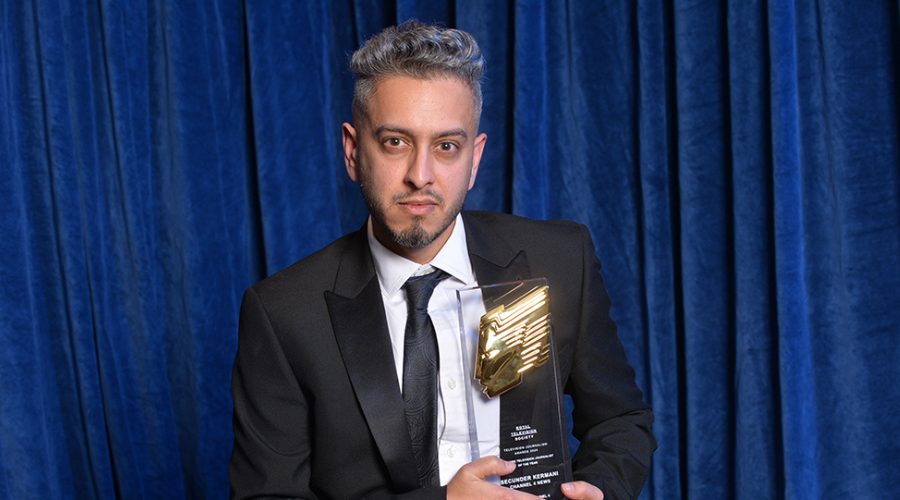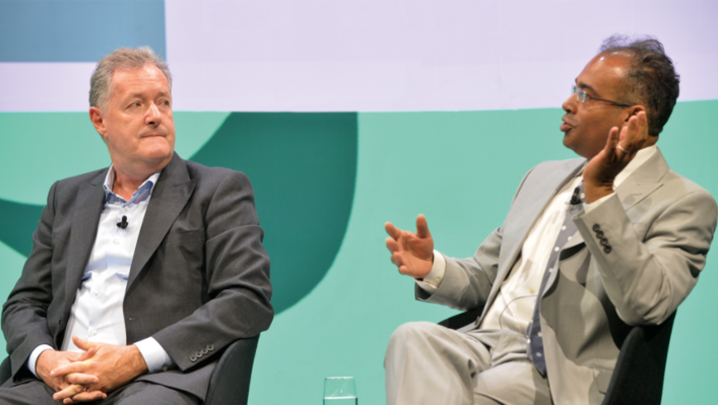Secunder Kermani, RTS Network Television Journalist of the Year, on attempting to understand the claims and counter claims of the war in Gaza
Breakfast is in Jerusalem. I’ve spent the previous day filming a report in the Occupied West Bank about a spate of deadly attacks by mobs of Israeli settlers on Palestinian villages. They were triggered by the killing of an Israeli teenage boy by Palestinians, but fit within a wider rise in settler violence, emboldened by the rise of extremist political allies and the atmosphere around the war in Gaza.
The dominant story of the week, however, is the fear that the long-running, often shadowy conflict between Israel and Iran could descend into all-out war. Israel killed several Revolutionary Guard commanders in Damascus at the start of April; Iran retaliated with a huge barrage of missiles, though nearly all of them were shot down. It seems neither side wants a war, but Israel has made clear it will respond, and the risk of tit-for-tat strikes escalating is hugely dangerous.
No-one’s clear when the response, whatever form it takes, will come. One western official told a colleague that it appears “imminent”; but this morning, Israeli and US sources quoted by other outlets are suggesting it will be after the upcoming week-long Passover holiday.
In any case, we’re leaving Jerusalem for an undisclosed location: the main purpose of our trip is an anonymous interview with an Israeli soldier. He has served during the war in Gaza, but is now a firm opponent of it.
He wants to speak out about what he witnessed but, despite international criticism of the huge number of civilian casualties in Gaza, the vast majority of Israelis remain firmly supportive of the military and he’s wary of the potential repercussions of the interview.
Our conversation lasts more than an hour and contains shocking testimony about the mindset of many Israeli soldiers, including how some openly said of civilians in Gaza: “There are no uninvolved, only unarmed”, and that the children “spared” by Israel in the war in 2014 were the ones responsible for 7 October. The Israeli army later responded by saying that it is committed to mitigating civilian harm.
Towards the end of the interview, our source grows emotional. “It’s frustrating and despairing,” he says, choking up, “It feels like our Government and their Government – Hamas – they’re actually on the same team and essentially want to see this piece of land soaked with blood.” It’s a powerful statement, though both parties would bristle at any comparison to each other.
We spend the evening filming a compilation of gruesome scenes we’ve collated from the conflict, projected onto a concrete wall to intersperse around the interview.
There’s the horrific aftermath of Hamas’s 7 October attacks, with dead Israeli partygoers sprawled across a bar, the mass destruction of Gaza by Israel’s bombardment and the awful images of bloodied and terrified Palestinian children suffering under it.
There’s also videos we’ve downloaded from social media, filmed by Israeli soldiers in Gaza themselves, larking around amid the devastation or celebrating it.
It’s a depressing watch. After we finish we head to a hotel in central Tel Aviv. The air is balmy and the streets teeming with young, trendy Israelis dining in al fresco restaurants. There are small posters, calling for the release of Israeli hostages, that act as a reminder of the war, but it’s deeply surreal to think how, just around an hour’s drive south, in Gaza, for Palestinians facing bombs and starvation, life could not be more different.
Foreign journalists are barred by Israel and Egypt from entering Gaza, which is hugely frustrating. Despite the huge risks they face, brave local journalists are working with international outlets to get footage out.
It feels a very calculated, deliberate decision not to allow us to be there ourselves to help bear witness to what’s unfolding, and to investigate for ourselves the claims and counter claims surrounding the conflict.
Secunder Kermani is Foreign Correspondent for Channel 4 News.



